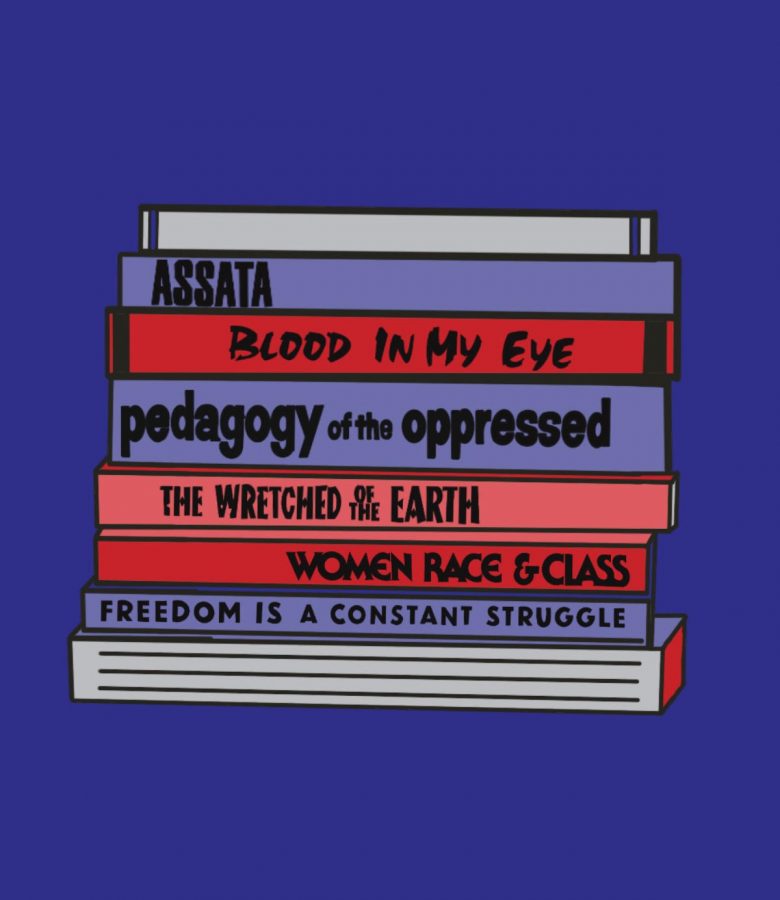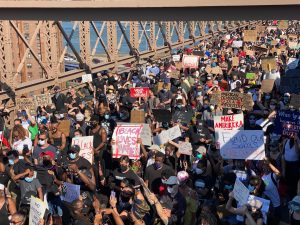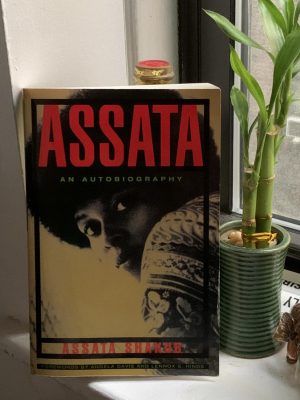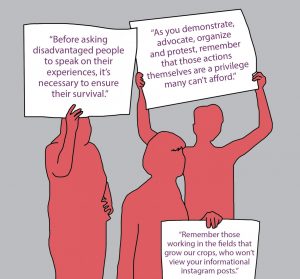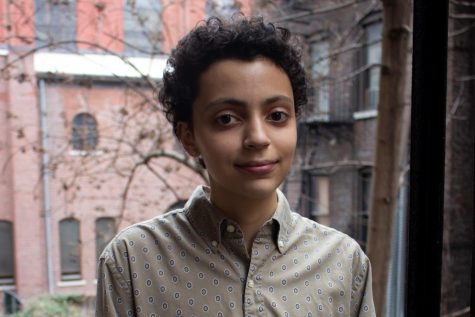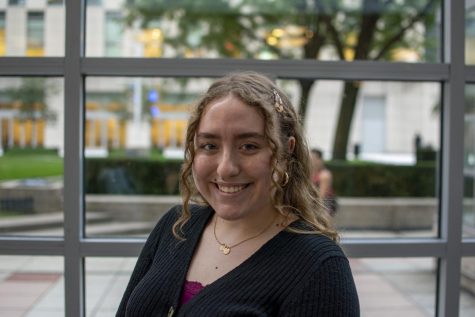What Is a Political Education?
Readings and active steps to take towards achieving social awareness
October 28, 2020
“No one is going to give you the education you need to overthrow them. Nobody is going to teach you your true history, teach you your true heroes if they know that that knowledge will help set you free,” wrote Assata Shakur, a revolutionary political educator, in her autobiography, “Assata.”
Education is power, and the power of knowledge can drastically change perspectives and ways of living. I can truthfully say that my way of living has changed after taking my education into my own hands.
There is a mixture of things that should make up a political education: literature, service and abolition. As of 2020, the education system in America is not only failing its students and teachers due to the pandemic, but it is also failing them by withholding certain information from the classroom.
Spreading information is one of the small ways that people in the community can spark change.
In the world of technology, resources are endless — it’s just a means of doing the work to find them.
Autobiographies
It can be hard to jump right into complex theory or heavy historical texts when not knowing where to even begin. Autobiographies are like history books in the way that the reader follows the perspective of the organizer or leader.
Assata Shakur’s autobiography is a must-read for anyone starting a political education. The pages grab the reader and don’t let go until the very end. This book is fundamental in the way it reads: a narrative to follow along to that also teaches the reader her struggle at the same time. The revolutionary was a political educator for the Black Panther Party; the book follows her life inside and outside of prison, revealing a real-life application of the prison industrial complex. Her subtle style of writing is digestible but moreover, impactful and only leaves readers curious about what else is out there.
“The Autobiography of Malcolm X” takes the reader through the entire lifespan of Malcolm X. His life is a prime example of putting theory into practice. Spending seven years in prison, he had a long time to educate himself politically. Once he was released, he immediately put his knowledge to practice and informed the people of his findings by becoming an organizer. Malcolm’s decision making shifts from egocentric to communal, showing readers that it is human to make mistakes while also prioritizing accountability.
Essays, Speeches and Theory
Theory and non-fiction text can be daunting, but it is also necessary in expanding what it means to gain a political education. These writers put words to the systems and problems that the United States inflicts on itself and onto other countries. They offer analyses of the things we normally would think nothing of. These works are fundamental in understanding the greater systems that control people globally.
“Pedagogy of the Oppressed” by Paulo Freire is an analysis of the oppressed versus the oppressor and the education system. Freire believes that education is a tool that will help liberate the masses. He views education as a mutual process instead of a one-sided obligation, the roles of teacher and student are then diminished. Freire also claims that when one practices the act of obtaining their own education, they too are practicing freedom.
“Blood In My Eye” by George L. Jackson encompasses revolutionary political education through an analysis of class war, fascism and racial violence. At the age of 18, Jackson robbed a gas station of $70; after that moment, he would spend the rest of his life in prison.
“Blood In My Eye” stresses the importance of learning about the information left out of our school systems. Like “Pedagogy of the Oppressed,” Jackson states the interchangeable roles of teacher and student. “We must never forget that it is the people who change circumstances and that the educator himself needs educating.” Jackson shows that people with higher political education have the power to make change.
“Women, Race and Class” by Angela Davis, Ph.D., reads easy and is accessible for anyone looking for somewhere to start. Each chapter builds upon the next to build a perspective of intersectionality within identity. Davis also put together a series of her interviews in the book, “Freedom is a Constant Struggle,” which builds upon the idea of intersectionality. Within the interviews, there is a stress for folks to not only stand in solidarity with their own personal communities but also standing in solidarity globally with people.
For further reading, you can explore Frantz Fanon’s “The Wretched of The Earth” and “Black Skin, White Masks.”
Social Media
Considering that everyone has been forced to live online during pandemic, screen time has increased immensely. However, since more people are looking at social media every day for longer periods of time, online resources have become more accessible and visible to the public.
While it’s not reliable to gain information from random people on the internet, scholars, organizers and activists have spent their quarantines making fundamental theory accessible on social media platforms.
Accounts such as @radicaltheory, run by abolitionist and educator @queersocialism, post key concepts and quotes from academic books that otherwise might not have been accessible to everyone.
Academics on YouTube, otherwise known as “BookTubers,” have created anti-racist reading lists for folks to base their studies on. Professors of revolutionary history have also been sharing the work that they’ve written, hosting lectures and explaining theory on podcasts.
In the world of technology, resources are endless — it’s just a means of doing the work to find them.
Where to Go
After studying revolutionary history, the next thought is: What now? The second half of political education is serving in your own community. You can also continue your learning by listening to those who organize and other members within a community.
Community engagement can look like a variety of things such as: volunteering at community clean-ups; attending teach-ins, rallies and protests; donating; and contributing to mutual aid funds.
Volunteer opportunities are always happening around the city, and if they’re not it is easy to create one yourself. Small acts like community clean-ups can be done on an individual basis; no organization is needed.
The spread of the coronavirus means that not everyone is able to safely attend in-person community events. Luckily, many organizers will livestream their events or even hold online-only ones so everyone can find a way to be involved. Additionally, there are newsletters updating the community on online and in-person actions to take.
Here in the city, Survived & Punished NY have opportunities for community members to phone or email representatives — something easily done at home.
Theorist Frantz Fanon studied how folks can reach decolonization, and one of the things that he emphasizes is the power of education and direct action. “What matters is not to know the world but to change it.”

